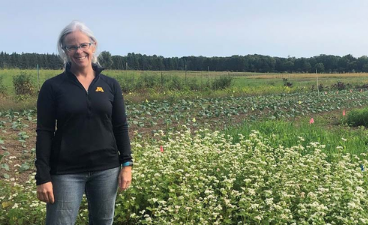
Emerging farmers apply science, explore soil-improving crops
(CFANS) The story of how Big River Farms and the University of Minnesota are working together to improve soil health, pollinator habitat and landscape cover has a number of intriguing “plots” — all of them centered on cover crops and intended to make the science of environmentally-friendly farming accessible and beneficial to emerging farmers.

Reflections from the Global Youth Institute
(CFANS) Adynn Stedillie had the opportunity of a lifetime — and one that will certainly shape her future. The first-year CFANS student, who is majoring in Plant Science with a track in horticulture and minoring in Food Systems and French, participated alongside seven other Minnesotans in the Global Youth Institute hosted by the World Food Prize Foundation.
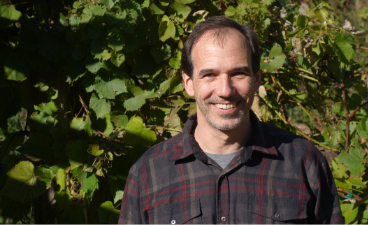
More Than Meets the Nose
When it comes to food, smell is almost as important as taste. It’s common to take a moment to smell a glass of wine, and there are whole sections of Target devoted to the scent of apples. It may come as no surprise that aroma is one of the factors considered when developing a new fruit variety—but did you know that aroma might also be related to other fruit qualities like texture?
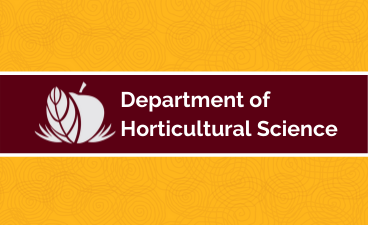
The Science of Summer: Undergraduate researchers put their summer break to work
Instead of spending their summers lounging by the lake or binging the latest hit show, undergraduate students from across the country arrive on the Saint Paul campus with a mission. Now, as they return home for the final years of their undergraduate programs, these students share the highlights of their summer research – the good, the tough, and the eye-opening.

Farewell to Brian Horgan and John Erwin
When it rains, it pours. For the first time in many years, we have two faculty leaving the department for different greenery. We say farewell to Brian Horgan and John Erwin as they begin new chapters of their careers.
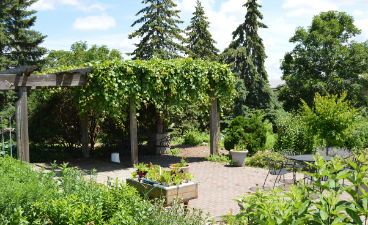
Introducing the Learning Garden for Horticultural Science: Renewing, Renaming, and Planning for the Future
The Learning Garden for Horticultural Science comes into a new era with a new name.

Alumni Award Winner & Kermit Olson Memorial Lecturer, John M. Dole
Our 2020 Distinguished Alumni Award winner is Dr. John M. Dole. Dr. Dole will be presenting at the Kermit Olson Memorial Lecture on February 26th in Green Hall on the Saint Paul Campus. His lecture, “A Floral Journey – Discovering the Magic of Flowers” will discuss how flowering plants are the backbone of horticulture, to all of agriculture, and how the flowers they produce are integral to our society.
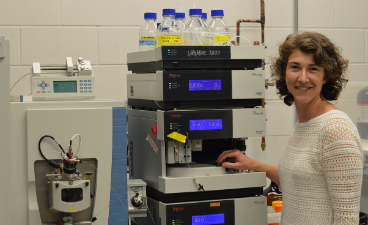
Where Western Science Meets Herbal Medicine
Medicinal plants have been used by many people over generations, all over the world. Yet medicinal plants have been undervalued in the medical community because their effects and chemical underpinnings have not been well understood from a western science perspective. Graduate student, Kate Sammons, wants to shift that perspective and make herbal medicine more mainstream.
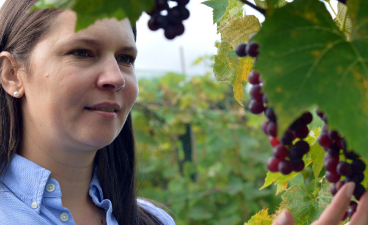
The Next Generation of Grapes: Cold Hardy Table Grapes for Minnesota
Graduate student Laise Moreira is researching table grapes for Minnesota in the hope of developing a grape that is seedless, cold-hardy, and flavorful. Most seedless cultivars currently on the market were bred for warm climates, dry conditions, or mild winters, making them unsuitable for Minnesota’s climate.
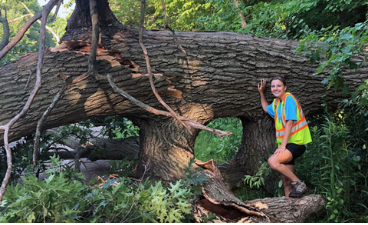
Landscape Arboretum Scholars: Growing Strong
Summer is a time for growth for our plants as well as our students. This past summer, six undergraduate students all with passions in horticulture, took part in the first Landscape Arboretum Scholars Internship. The Landscape Arboretum Scholars worked on several projects throughout their summer at the Minnesota Landscape Arboretum.
